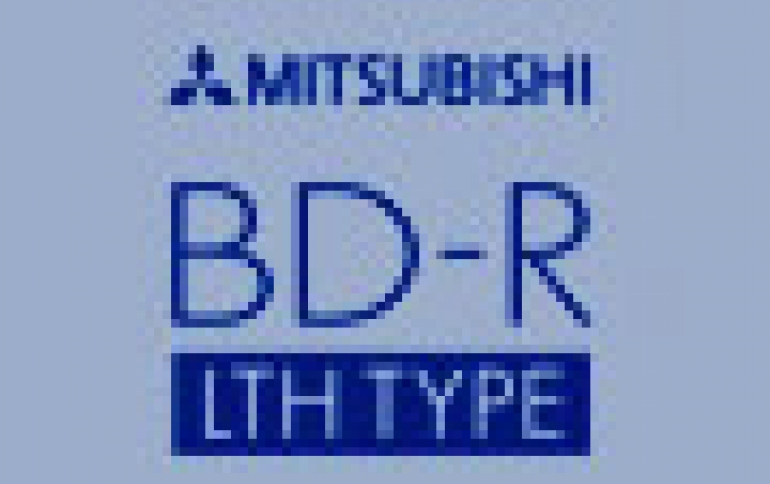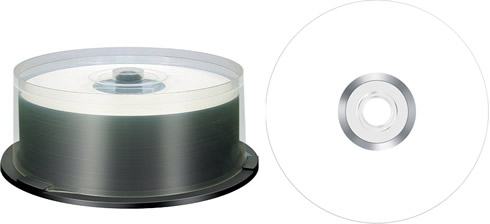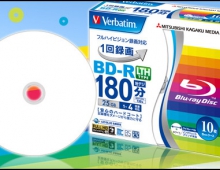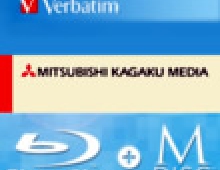
Mitsubishi Remains Committed To Optical Disc Production
Responding to earlier reports, Mitsubishi Kagaku Media (MKM) reaffirmed the company's commitment in the production of high-quality DVD and Blu-ray disc media.
Japanese newspaper Asahi Shimbun on Monday reported that Mitsubishi Chemical - a parent company of a MKM - would stop production of Blu-ray Discs and DVDs and would seek to increase its profitability by outsourcing production in Taiwan and Indian disc makers.
Mitsubishi Kagaku Media (MKM) told CDRinfo that the paper interviewed a top management in Mitsubishi Chemical Corp. (MCC) and not MKM, and that the executive talked about the direction of the optical disc business production in general and not MCC's global business prospect.
"It is a common tide in this optical disc industry that CD, DVD even BD single layer disc are not profitable for manufacturing in Japan. All players in Japan are purchasing those discs from outsource such as Taiwanese and Indians," said Mr. Chiba Zenjirou, tech manager for MKM. He described the paper's report as a "conjecture" and untrue.
"We still keep producing our own products (discs) in house. But target market of our own products move from consumer to Business to Business (B2B) market," he added.
MKM plans to unveil its plans that will drive the company through a new phase at the Cebit Show in Germany.
MKM is also planning to release its first BDRTL (BD-R triple layer) discs soon, after some delays from the company's original plan. Currently, only TDK is offering BDRXL discs.
New High-grade 50GB BD-Rs
Mitsubishi Kagaku Media also today released a new series of 50GB BD-R DL discs, specifically designed for long-term archival.
The BD-Rs have been optimized to operate with Pioneer's new BDR-PR1 Blu-ray disc drive, which supports up to 6x BD-R recording using the relaible CLV strategy. It is obvious that one of the most important factors that affect long-term storage is the quality of the recording and thus the characteristics of the recorded signal.
Using the Arrhenius model, MKM estimated that the longevity of the new BD-Rs is more than 50 years.

Some of the quality parameters mentioned by MKM related to the quality of the recordings on the new BD-Rs immediately after production and by using Pioneer's BDR-PR1 drive as a burner, include low Burst Error Cound (BEC) and Random Symbol Error Rate (RSER). These parameters are among the basic signals related to digital errors of a Blu-ray disc.
The Random Symbol Error Rate is defined as the Symbol Error Rate where all erroneous bytes contained in burst errors of which the length is ≥ 40 bytes are excluded from counting in the numerator as well in the denominator of the SER calculation. The RSER value is calculated over 10,000 LDC Blocks.
BEC is the number of burst error with a length ≥ 40 bytes and according to the BD specifications for read-only disc, it should remain lower than 8. For more information read this article.
The new BD-R DL discs are also using MKM's MABL metal nitride recording layer as well as a hybrid organic-inorganic coating for protection against scratches, dust and fingerprints.
The new discs (model PABS25RDJP) will be available in Japan with a printable surface, compatible with inkjet printers.
Mitsubishi Kagaku Media (MKM) told CDRinfo that the paper interviewed a top management in Mitsubishi Chemical Corp. (MCC) and not MKM, and that the executive talked about the direction of the optical disc business production in general and not MCC's global business prospect.
"It is a common tide in this optical disc industry that CD, DVD even BD single layer disc are not profitable for manufacturing in Japan. All players in Japan are purchasing those discs from outsource such as Taiwanese and Indians," said Mr. Chiba Zenjirou, tech manager for MKM. He described the paper's report as a "conjecture" and untrue.
"We still keep producing our own products (discs) in house. But target market of our own products move from consumer to Business to Business (B2B) market," he added.
MKM plans to unveil its plans that will drive the company through a new phase at the Cebit Show in Germany.
MKM is also planning to release its first BDRTL (BD-R triple layer) discs soon, after some delays from the company's original plan. Currently, only TDK is offering BDRXL discs.
New High-grade 50GB BD-Rs
Mitsubishi Kagaku Media also today released a new series of 50GB BD-R DL discs, specifically designed for long-term archival.
The BD-Rs have been optimized to operate with Pioneer's new BDR-PR1 Blu-ray disc drive, which supports up to 6x BD-R recording using the relaible CLV strategy. It is obvious that one of the most important factors that affect long-term storage is the quality of the recording and thus the characteristics of the recorded signal.
Using the Arrhenius model, MKM estimated that the longevity of the new BD-Rs is more than 50 years.

Some of the quality parameters mentioned by MKM related to the quality of the recordings on the new BD-Rs immediately after production and by using Pioneer's BDR-PR1 drive as a burner, include low Burst Error Cound (BEC) and Random Symbol Error Rate (RSER). These parameters are among the basic signals related to digital errors of a Blu-ray disc.
The Random Symbol Error Rate is defined as the Symbol Error Rate where all erroneous bytes contained in burst errors of which the length is ≥ 40 bytes are excluded from counting in the numerator as well in the denominator of the SER calculation. The RSER value is calculated over 10,000 LDC Blocks.
BEC is the number of burst error with a length ≥ 40 bytes and according to the BD specifications for read-only disc, it should remain lower than 8. For more information read this article.
The new BD-R DL discs are also using MKM's MABL metal nitride recording layer as well as a hybrid organic-inorganic coating for protection against scratches, dust and fingerprints.
The new discs (model PABS25RDJP) will be available in Japan with a printable surface, compatible with inkjet printers.



















